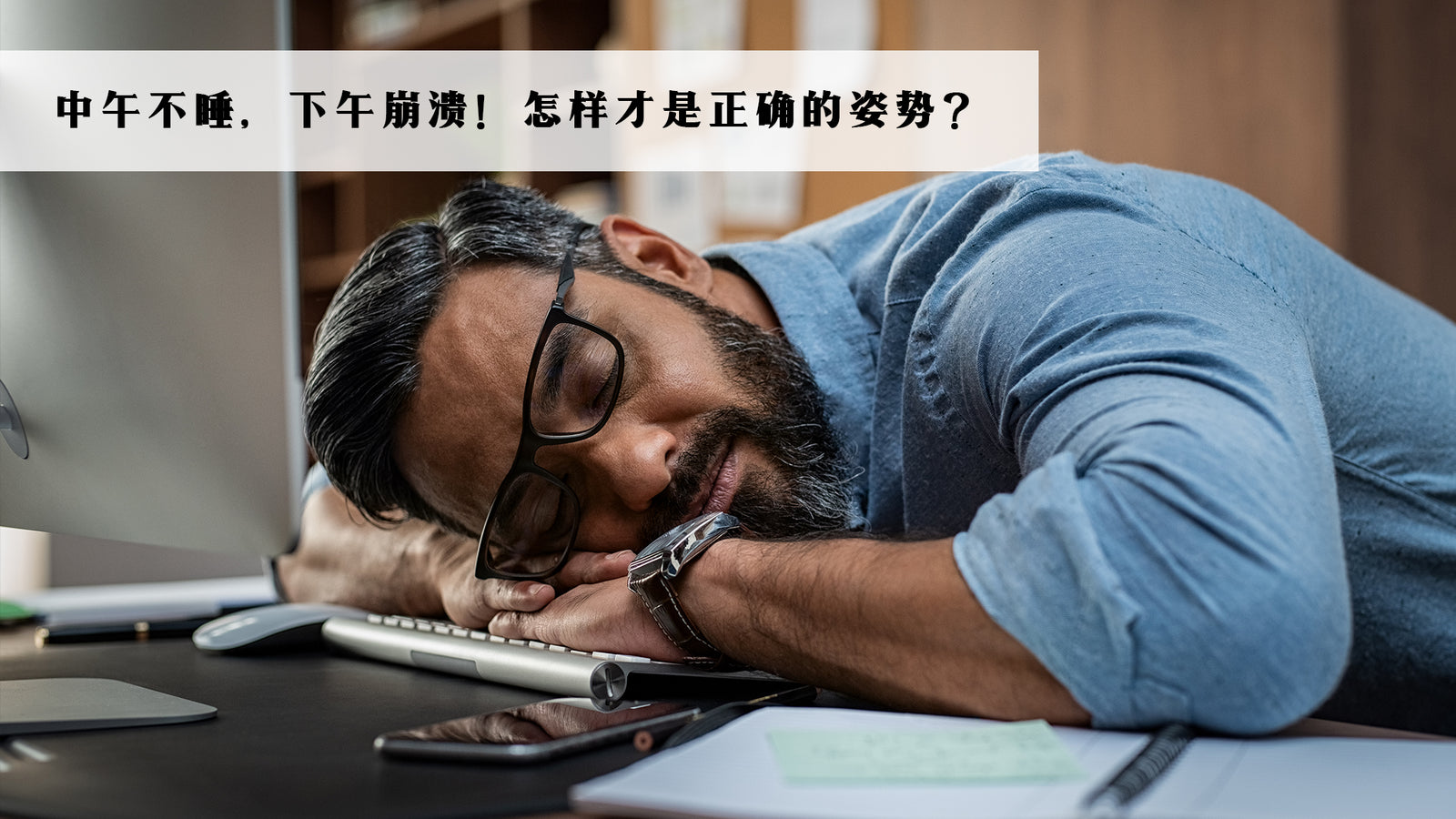Your Cart is Empty
🚛 FREE SHIPPING for order RM 120 & above
🚛 FREE SHIPPING for order RM 120 & above
🚛 FREE SHIPPING for order RM 120 & above
【不是中藥 itsherbs.com】Body Types
[不是中藥 itsherbs.com] Health Tips
【不是中藥 itsherbs.com】Media Reports • Announcement
【不是中藥 itsherbs.com】Body Types
8 major constitutions of traditional Chinese medicine
[不是中藥 itsherbs.com] Health Tips
Chinese Medicine // Wellness // Knowledge
【不是中藥 itsherbs.com】Media Reports • Announcement
Media Coverage • Announcements

Traditional Chinese medicine believes the best time for a nap is between 11 a.m. and 1 p.m. It considers this period as the time of yin-yang transition, when the body's meridian energy "combines yin" and "combines yang"."time, so taking a good nap is also very important. This period is when the body's yang energy is at its peak and yin energy is weakened. At noon, the qi and blood flow to the meridians associated with the heartThe Heart Sutra is in command, and its qi and blood are the most vigorous. "The heart governs the spirit, opens to the tongue, and its brilliance is on the face." The heart drives the circulation of blood, nourishes the spirit, qi, and tendons. Taking a short rest at noon is very beneficial for nourishing the heart and will keep a person energetic throughout the afternoon.
However, seeing many friends like to nap with their heads on the desk, I can't help but feel a bit worried. I believe many friends have experienced numbness in their hands and feet, redness on the skin of their face and arms, bloating, and even their eyes turning completely white after napping with their heads on the desk. To many people, napping is clearly a good habit, so how could it affect health?

First: Sleeping on your stomach affects blood circulation
The heart rate of the human body generally decreases during sleep, and the nap is precisely after lunch, when the stomach requires a large blood supply to digest food. The brain is already lacking blood, and sleeping face down further leads to insufficient blood supply to the brain, which may cause symptoms such as dizziness, blurred vision, and tinnitus upon waking.

Second: Sleeping on your stomach can easily cause nerve compression
The radial nerve, ulnar nerve, and median nerve in the arm are the three main nerves controlling the human hand. The radial nerve is located on the upper arm and is responsible for the movements of the wrist and fingers. The ulnar nerve is an important nerve that innervates the hand. Lying face down on a table with the arm as a pillow can compress the ulnar and radial nerves in the arm, causing nerve paralysis, affecting normal blood circulation and nerve conduction, and over time leading to nerve damage.
Third: Muscle strain around the neck and spine
Sleeping with your face down on the desk for a long time distorts the neck and compresses the upper body, which can easily cause shoulder and neck muscle soreness and may cause slight deformation of the cervical spine. When we lie face down, we often turn our head to one side, a posture that causes uneven contraction of the neck muscles, leading to excessive fatigue of the neck muscles and easily triggering cervical spondylosis; meanwhile, prolonged compression of the upper body can easily cause the spine to bend, thereby inducing conditions such as lumbar muscle strain.

Fourth: Affects the digestive system
Usually, after we finish lunch, our stomach and intestines start working to digest the food we have consumed. However, food cannot be digested in a short time; if we want to completely digest the food in the stomach and intestines, it takes about 3 hours.
If you go to sleep shortly after lunch, it will inevitably affect our digestive system's ability to process food, which can easily lead to bloating issues. This situation can also easily cause long-term obesity problems, especially by causing the abdominal muscles to develop a memory effect, resulting in a potbelly.

First: If conditions permit, try to maintain a lying-down sleeping position as much as possible. This is currently the most ergonomic sleeping posture. It is recommended to walk for 10 minutes after meals before taking a nap.

Second: Reclining and sleeping on a chair: This posture avoids pressure on the eyeballs, reduces pressure on the cervical and lumbar spine, and allows for smoother breathing. If you use this sleeping position, remember to place an inflatable pillow under your neck to share the pressure on the cervical spine, and a cushion under your waist.

Third: Sleeping against the wall: Be careful not to have your body directly touching the wall, as the coldness of the wall can harm the body and may trigger some cold-related illnesses. You can use an eye mask, which allows you to fall asleep anytime and anywhere by simply putting it on your head.
Fourth: If you must sleep with your head on the desk, you can first lower the height of the chair to reduce pressure on the spine from the upper body, then place a soft cushion like a pillow on the desk to raise the position of your head.

In short, during nap time, if conditions allow, half an hour is ideal; if not, 15 minutes is also excellent; if it's really difficult, just steal some time for a quick nap. Health preservation is about following the natural laws, so paying attention to napping is certainly necessary. The correct napping posture helps you recharge well and stay energetic until the end of the workday!


